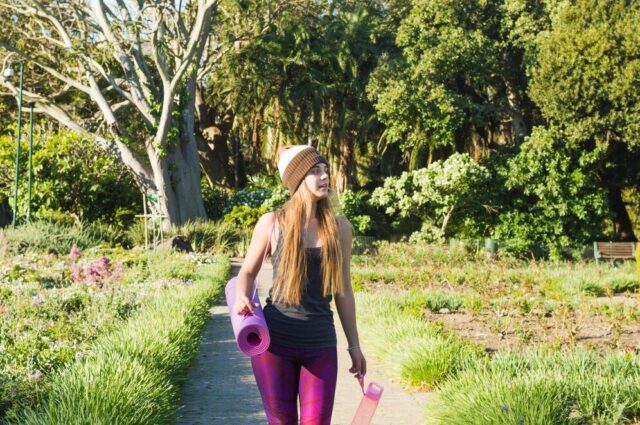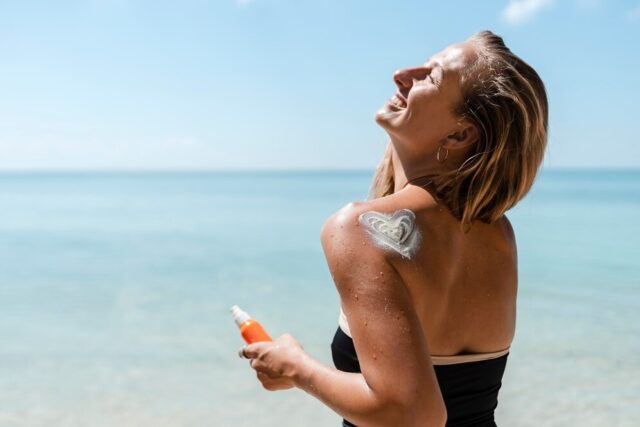
Summer is a time of fun and relaxation, but it’s also important to prioritize your health during the hottest time of the year. From eating well to staying active and protecting your skin from the sun, there are many ways to ensure you stay healthy and happy throughout the summer.
Stay Hydrated
Staying hydrated is crucial during the summer, especially when spending time outdoors. Make sure to drink plenty of water throughout the day, and carry a reusable water bottle with you wherever you go.
Fruit-infused water is a refreshing and tasty way to stay hydrated. Adding slices of citrus fruits or berries to your water can make it more enticing to drink, helping you reach your daily water intake goals.
Avoid caffeine and alcohol, as they can dehydrate your body. If you’re engaging in physical activity, consider drinking a sports drink to replenish electrolytes lost through sweat.
Get Outside and Exercise

Summer provides the perfect opportunity to enjoy outdoor activities like hiking, biking, swimming, and playing beach volleyball. These activities not only keep you active but also help you soak up the benefits of fresh air and sunshine.
Joining a local sports team or group fitness class can be a fun way to stay motivated and meet new people during the summer months. Consider trying a new activity like paddleboarding or rock climbing for a challenging and rewarding experience.
Yoga in the park or on the beach can provide a peaceful and rejuvenating workout for both your body and mind. Practicing mindfulness outdoors can help reduce stress and improve your overall sense of well-being.
How Often Should I Exercise During Summer?
It’s recommended to engage in physical activity at least 150 minutes per week, according to the Centers for Disease Control and Prevention (CDC). This can be broken down into shorter sessions throughout the week to make it more manageable.
Try incorporating a mix of cardiovascular exercise, strength training, and flexibility exercises into your weekly routine. This variety can help target different muscle groups and keep your workouts interesting and challenging.
Listen to your body and adjust your exercise routine based on the weather and your energy levels. Stay hydrated, wear appropriate clothing and footwear, and take breaks as needed to prevent overheating or exhaustion.
It is essential to prioritize your health and well-being by visiting a doctor at least once a year for a check-up. Regular check-ups can help detect any underlying health issues early on and allow for timely intervention and treatment if needed.
Protect Your Skin

Applying sunscreen with a minimum SPF of 30 is crucial to protect your skin from harmful UV rays. Make sure to reapply sunscreen every 2 hours, especially if you’re swimming or sweating profusely.
Wearing protective clothing like wide-brimmed hats, sunglasses, and lightweight long sleeves can shield your skin from sun exposure. Seek shade during peak hours when the sun’s rays are strongest to reduce your risk of sunburn and skin damage.
Be mindful of reflective surfaces like water, sand, and concrete, which can intensify UV exposure. Take extra precautions in these environments and apply sunscreen more frequently to prevent sunburn and skin irritation.
Take Precautions When Camping
When camping, it’s essential to choose a safe and secure campsite. Set up your tent in a stable and level area, avoiding low-lying areas prone to flooding or high ground susceptible to strong winds. Secure your tent with stakes and guy lines to prevent it from collapsing during inclement weather conditions.
Keep your campsite organized and free of clutter to reduce tripping hazards and prevent accidents. Store food in airtight containers and dispose of waste properly to minimize the risk of attracting wildlife to your campsite.
When building a campfire, choose a designated fire pit or create a cleared area free of flammable materials like leaves, grass, and branches. Clear a radius of at least 10 feet around the fire pit to prevent wildfires and ensure a safe burning environment. It takes only 30 seconds for a small flame to turn into a giant fire. Always keep a bucket of water nearby in case of an emergency. Never leave a campfire unattended and make sure to fully extinguish it before leaving the campsite or going to sleep.
Watch Out for Bugs

Use insect repellent with DEET or Picaridin to deter mosquitoes and other biting insects while outdoors. Wear long sleeves, pants, and closed-toe shoes to minimize exposed skin and reduce the risk of mosquito bites.
Wear light-colored clothing and tuck pants into socks when hiking or spending time in wooded areas to make ticks more visible. Perform regular tick checks on yourself, family members, and pets after outdoor activities to identify and remove ticks promptly.
Avoid walking through tall grass, brush, or leaf litter, where ticks are commonly found. Stay on designated trails and pathways to minimize contact with ticks and reduce the likelihood of tick bites while enjoying outdoor activities.
Bees are essential pollinators, but their stings can be painful and potentially dangerous for individuals with allergies. It’s important not to run when you see bees; the average bee can fly up to 15 miles per hour. Stay calm and still if a bee approaches you, and slowly move away without swatting or agitating the bee.
Avoid wearing bright colors or floral patterns that may attract bees and other stinging insects. Steer clear of fragrant lotions, perfumes, and scented products that can also attract bees to you during outdoor activities.
If you encounter a bee hive or swarm, leave the area calmly and seek shelter indoors. Do not attempt to disturb or provoke bees, as this can lead to aggressive behavior and increase the risk of bee stings and allergic reactions.
Staying healthy during the summer requires a combination of conscious choices and proactive measures to ensure your well-being and enjoyment of the sunny season. From eating a balanced diet to staying active and protecting your skin from the sun, there are many ways to prioritize your health and thrive in the summer months.








